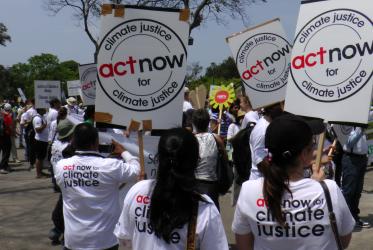Displaying 61 - 80 of 94
12 June 2016
Voices of faith speaking to voices of fear
03 February 2016
Person with disability shares reflection on AIDS conference
10 December 2015
Land rights focus of panel discussion
17 November 2015
A humble man firmly rooted in faith
20 August 2015
Churches' “prophetic voice” will be busy in 2015
18 June 2015
WCC Executive Committee speaks out on migrant crises
12 June 2015









